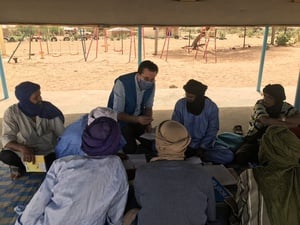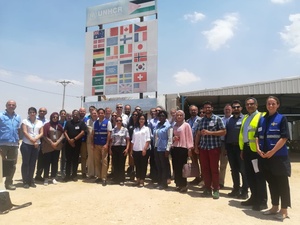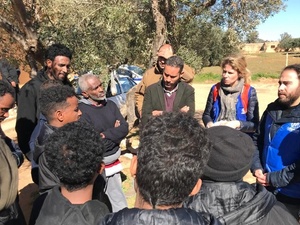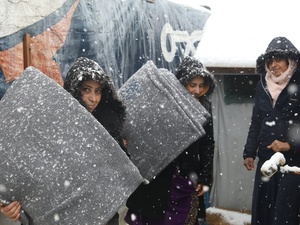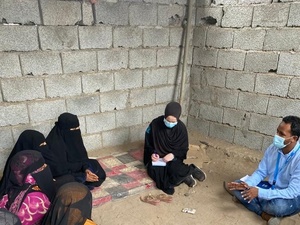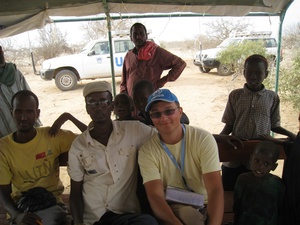Stories from the Field: “There have been improvements in Greece, but there is still a long way to go”

Stories from the Field: “There have been improvements in Greece, but there is still a long way to go”
An interview with our Norwegian UNHCR colleague Siw Skjold Lexau in Athens, Greece.
“Stories from the Field” is an interview series providing insight into the daily lives of some of our Northern European colleagues, working for the organization all over the world.
Why did you choose to work for UNHCR?
“We are currently in a situation in which the institution of asylum is seen through the lens of fear from uncontrolled mixed movements of both migrants and refugees. The number of people migrating has decreased significantly since 2015 and 2016, when one million people arrived in the EU. Last year, 60,000 asylum seekers reached Greek shores, most of them with refugee profiles. For me, it is very valuable to work for UNHCR, because there is now a clear need for maintaining the obligations of the 1951 Refugee Convention. With COVID-19, we have seen just how quickly the world can change. So it’s in everyone’s long-term interest that refugee and humanitarian protection systems exist. With many years of experience in government, I find it particularly interesting to learn from the field and work with refugee protection from a different perspective.
I believe the work UNHCR is doing in Greece is important because we need to support the country in building robust national protection institutions that operate with legitimacy, trust and checks and balances. When countries are under pressure, those international principles are challenged, and that’s why we need robust institutions that can tackle complicated situations along Europe’s external borders. That’s also why capacity building is necessary to prepare Greece and other European countries for future challenges.”
How would you describe your work?
“I’m a senior advisor in capacity building, so I’m working with the Greek government to help them build capacities in their institutions to better manage asylum and refugee movements. It’s no secret that there are some challenges within the Greek system that need to be addressed in order to manage reception and applications, so this is my main task.
Greece has been in a difficult situation, especially since arrivals increased in the autumn of 2019. The Greek asylum system is still in the making, so it has been quite overwhelming to cope with the increased number of people asking for asylum. As people might have seen in the media, the conditions in some of the camps, especially on the islands are severe. It’s difficult to find sustainable solutions so that Greece can provide appropriate standards for people who are seeking protection while their applications are being reviewed. Considerable resources have been invested in the Greek asylum system, and even though there have been improvements, there is still a long way to go.”
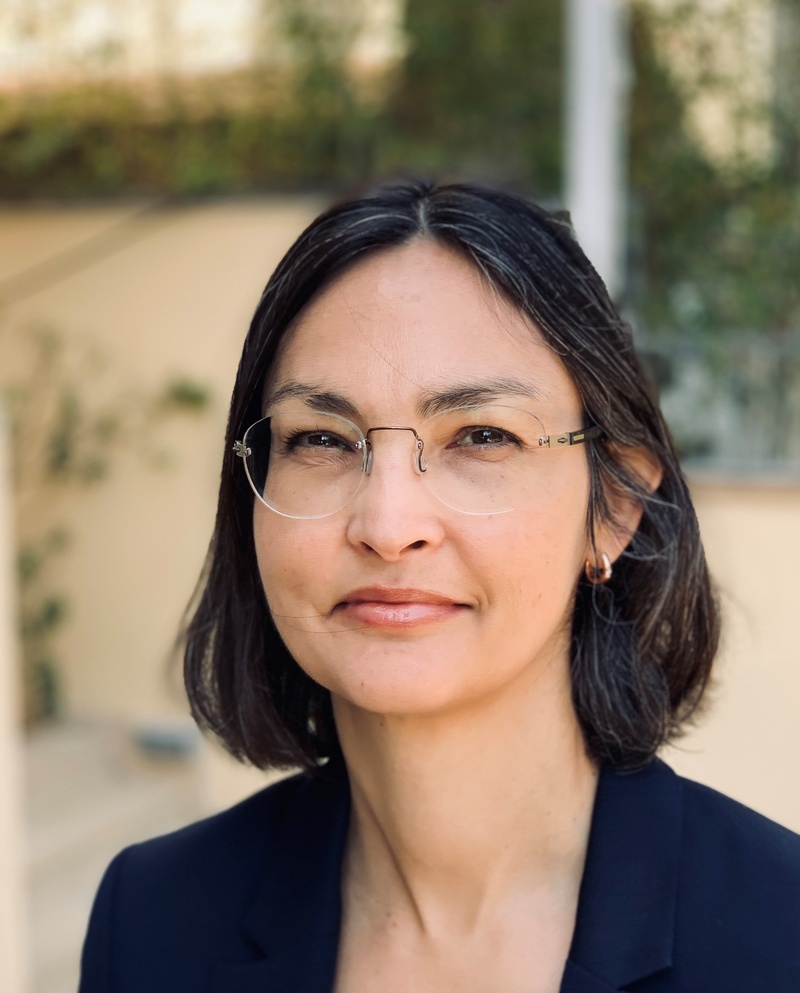
Siw Skjold Lexau in UNHCR
- Senior Advisor for Capacity Building in Greece.
- Originally from Norway.
- Political scientist.
- Has been working for UNHCR since November 2019.
- Has worked with refugee and migration issues for over 20 years

What are some of the worst experiences you have had, working for UNHCR?
“For me, the most recent example would be my trip to the Moria Camp in Lesbos in January 2020. It was my first visit to the camp after having followed the situation in Greece for many years. The dire conditions of the camp are well known. Too many people live in an overcrowded area without proper shelter, sleeping in the open or in make-shift tents, without access to sanitary facilities and clean water, with trash and garbage everywhere, without the necessary security for vulnerable women and children. For me, what makes it so bad is that better living standards could so easily be fixed. It’s so easy to blame someone. Some blame Greece, some blame Europe as a whole, but it doesn’t change the situation for those who live in the camp. What matters is finding an acceptable solution.
Recently, however, there has been some good news. An increasing number of European states are willing to relocate children from these conditions, and the first departures have now taken place with the assistance of UNHCR and other partners. After working intensively, Greek authorities have now also decided to move a considerable number of people out of Moria who are at particular risk during the COVID-19 situation.
It’s always challenging to work on long-term goals. In the context of Greece, working on building long-term institutions and systemic improvements is even more difficult due to the constant emergencies. Finding both the time and the right approach for governments to sort out these burning issues is quite demanding, while building functioning institutions that are robust enough to solve upcoming crises at the same time.”
“When I visited Greece for the first time around ten years ago, there was no asylum system, but today systems and institutions are increasingly taking responsibility. It’s not perfect, but we have come a long way.” © Ritzau Scanpix
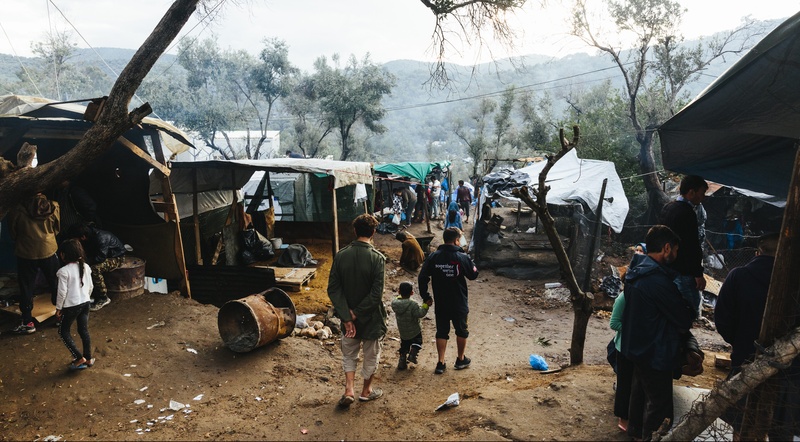
What are some of the best experiences you have had, working for UNHCR?
“It’s difficult for me to mention one specific experience to reflect on, but having seen and visited different UNHCR offices and missions around the world, I have always been very impressed with the dedication and professionalism of the organization no matter where I go. It has also been inspiring for me to see how refugees and migrants are making the most out of the little resources they have, like standing up for their community and helping each other, developing activities and businesses. I think we can all learn from this.
It’s always difficult to see the immediate effects of long-term international cooperation and national institution building, which is frustrating sometimes. However, when we look back, many things have changed for the better in quite a short timeframe. When I visited Greece for the first time around ten years ago, there was no asylum system, but today systems and institutions are increasingly taking responsibility. It’s not perfect, but we have come a long way.
On a global level, I think 2015 was a turning point for international protection dialogues. We now have The Global Compact for Refugees and Migration (an intergovernmental agreement which aims to secure a more predictable and equitable responsibility allocation for refugee and migration-related issues). I think the most important thing we have achieved is not necessarily what is on paper: since 2015, there has been a complete change in certain countries’ awareness and willingness to discuss solutions.”
Six Skjold Lexau latest visit to the Moria Camp in Lesbos in January 2020 made a strong impact on her. © UNHCR/Achilleas Zavallis


